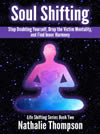
So the topic du-jour today is this idea of passion, and whether or not the idea of following your passion is a good thing or just a trite little saying that’s going ruin all our lives. As you can probably tell from that first sentence, this whole debate is a little annoying to me, because the anti-passion movement seems to be picking up a lot of speed out there lately, and I think that’s harmful. I’m here to tell you that following your passion is still good advice, and that you should definitely do it. The problem, as I see it, is in how people define the concept of passion in the first place.
Career satisfaction vs following your passion(?)
There have been a lot of articles floating around the Internet lately that are telling people that following your passion is bad advice which will only lead to frustration and heartache. Cal Newport, author of “So Good They Can’t Ignore You”, which is the book that seems to have spawned most of this anti-passion stuff (at least, he’s the guy most of the articles I’ve read seem to be quoting) says that successful people who are happy in what they do have separated their concepts of career satisfaction from the specifics of the work that they do. As an example, in an article he wrote for the Huffington Post, he says that:
The pig farmer is not happy because he was born with a pig farmer gene, or because he grew up feeling a deep pre-existing passion for pork. He’s instead happy because he’s making a great living, has tons of autonomy, and does work that’s useful to the world (he raises his pigs on food scraps from nearby casinos that would otherwise go to waste). You could replace pig farming with any number of pursuits, but so long as they yielded these same traits, he’d love his work.
I agree with this statement wholeheartedly. But I’m not sure how this doesn’t equate with passion. In my book, he is living his passion! The confusion here comes from a core misunderstanding of what “passion” actually means. Remember that it’s about understanding the WHY for what you want; from an LOA perspective, it’s never about the thing itself — it’s about the deeper reasons and feelings that lie behind it. Of course pig farming is only one of many ways in which the pig farmer could be following his passion – his touchstones are obviously autonomy, security and meaningfulness, and I would assume he also finds a fair amount of satisfaction in using his body (physical action) and being outdoors. As a pig farmer, all of these touchstones are met.
Passion doesn’t have to be “the one and only”
In his book “How to Fail at Almost Everything and Still Win Big”, Scott Adams actually says “passion is bullshit” and insists that his own success came about after a long string of failures with plans and schemes that he had hoped would make him rich. And yet, in this same book he talks about how he had always enjoyed drawing and doodling as a child (even though he never felt he was any good at it).
In an article he wrote for the Wall Street Journal, Adams says that:
For most people, it’s easy to be passionate about things that are working out, and that distorts our impression of the importance of passion. I’ve been involved in several dozen business ventures over the course of my life, and each one made me excited at the start. You might even call it passion. The ones that didn’t work out—and that would be most of them—slowly drained my passion as they failed. The few that worked became more exciting as they succeeded.
Again, to me this is a gross misunderstanding of what is really means to follow your passion; again, it’s confusing the specifics with what’s really at the root of the specific thing: the feelings and the touchstones that are behind it. What does the thing (i.e. specific career) give you? From reading Adams’s book and looking at the string of “failures” and successes that he talks about, it’s clear that some of his biggest touchstones are freedom and creativity.
Did Scott Adams have to be a cartoonist in order to have those touchstones in his life? No. Could he have done it in another way and still be happy? Of course. Because there are other valid options, does that mean he didn’t really follow his passion? Absolutely not! Your passion doesn’t necessarily have to be a “one and only” kind of scenario! Once you understand that your passion is tied to your touchstones, then you can understand that there are many different possibilities that you could pursue that would all be equally valid ways in which you could express and experience that passion. And the way I see it, Adams’s story is a really great example of what following your passion (whether you realize that’s what you’re doing or not) and not giving up in the face of multiple failures can lead to.
Digging deep to find your passion
To sum this all up for you: as with so much in life, passion in career choices is not about the actual career or field you’re working in; instead, it’s about the why behind that career choice. Why do you want to work in that field or that job? What is it that you think you’re going to get from that option? Most people’s first instinct is to say it’s because of the money, but if that’s your answer then look a little deeper because it’s never just about the money.
Take some time to look within and figure out what it is that is most important to you. Do you want freedom? Security? To be able to express your creative side? To experience adventure and excitement? Do you find satisfaction in how your actions can help others? What is the underlying, core principle that makes you tick? Your passion lies in that, and that is what you should concentrate on; the particular career is variable, but as long as your choice allows you to express those touchstones, then this is what following your passion really means.
photo credit: (c) Can Stock Photo


















Kind of like the Dyson example you gave once. He invested the bag-less vacuum cleaner for which there was no market. Yet, 30 years later, there was one. He stuck to his guns even though he failed multiple times, and the market manifested so he created that through his vision as an inventor.
Successful people talk of failure a ot and how they embrace it and are not afraid of it. They are actually not afraid of anything. I think these two authors seem to have some limiting beliefs hovering around.
Failure is definitely best seen as a stepping stone to greater things. Think of all the things we learn through our “failures” that we wouldn’t have learned otherwise, and think how much those things we learned through those experiences helped us in the next phase of our journey. This concept of embracing failure is something that Adams does talk at length about in his book, so I don’t think he has any limiting beliefs with that aspect of things. I think in a lot of cases, people just don’t like that word “passion”… maybe they think it’s too “New Age-y” or something. Or maybe they just hold a very different viewpoint about what it actually means. But whatever it is you want to call it, I think it’s critical in helping us understand our purposes here and in giving us a direction or path to follow as we build our lives.
Nathalie, why most people are uncomfortable with the word “passion” is because they associate it with their main job, and they have been in the same kind of work for so long that (as you said in another post) they have become expert in it, but don’t actually feel passionate about it. So what they actually feel is trapped, and it is financially way too risky to try to switch careers at that point. (I know, I’m a recruiter – it’s very hard for people to make a big switch without starting at the bottom of the ladder.) If they feel so trapped that thinking about passion is embarrassing, then they will need to find it through other outlets (hobbies, relationships, etc.) or be willing to do some internships or pro bono consulting in the work area that they do feel passionate about (which may feel too junior at first, but that’s life) until they have the experience and credibility to take it to a financially self-sustaining level. There are some larger firms with the resources to let people make lateral moves into very different work areas, but they are unfortunately very much in the minority.
Hi Glenn, welcome to Vibe Shifting, and thanks so much for taking the time to comment! 🙂 Your comment reminds me of just how much I need to get my book finished and published. It saddens me that so many people feel trapped in the jobs they have — I know what they’re going through because it’s a situation I was in myself for many years. I get it, I really do; when you’ve got a mortgage and kids and responsibilities, it is really, really tough to even contemplate giving up the security of a steady paycheck and a pension and benefits plan to take a risk on an unknown.
But the thing is, you don’t have to give up your day job to start working towards your real passion! This is the thing that so many people don’t understand. It might seem discouraging to think about slugging away at something you hate while you scrape together whatever time you have to work towards that dream, but the time is going to pass whether you do something with it or not. And if you never start working towards that dream, then that pretty much guarantees that it will never happen for you. If you want to make a change in your life than YOU are the one who has to put the effort into making it happen, even if you have to start with itty-bitty baby steps. Progress is progress, no matter how small, and all those little steps will one day add up to something big (and if you put your heart behind it, it’ll likely happen a lot sooner than you think, too).
People do not think that baby steps are special or anything and look at only the big stuff. My own parents think this way. Even if you have lofty goals and your heart plays another tune, if it does not happen within a certain time frame, then you might as well drop them, and this is very sad and that is why they have been sad. it is the overall sadness of society. Yes, Nathalie, it is important to get that book out there!
Baby steps are critical foundation stones to building something bigger. Our job is to keep going and keep working at what is most important to us, even when we don’t see the immediate results. But the results will come. They always do.
“If you wish to move mountains tomorrow, you must start by lifting small stones today.” ~African Proverb
P.S. The book. I’m working on it, I’m working on it! 😉 Are you going to volunteer to be one of my beta-readers, btw? I’ll be putting the “recruitment notice” out via the newsletter and FB sometime in August.
Sure!!!!
I was speaking to the “itty-bitty baby steps” with the line “willing to do some internships or pro bono consulting in the work area that they do feel passionate about” in my original comment. However, if you have other suggestions about what those initial steps might be, it would be interesting for you to share some of those and I can vet whether they would have relevance in a recruiting context.
Yes, I agree with you Glenn, and I am sure Nathalie will have more to add on this. It is those steps that take you to where you want to go, regardless of what anyone else thinks or f you yourself think it will take long. In the grand scheme of things it won’t, it is just a belief that it will. One must get out there and do what they can to expose themselves more to their passion, familiarize themselves and follow it. I am doing that myself now by observing in the field in which I am interested and learning so much!
As a recruiter, I am sure you make suggestions of what people can do to get into the field they want. It is better with the spoon than with the shovel, as they say in the Mediterranean, i.e., itty bitty baby steps rather than huge leaps. It is great that you make such suggestions, as a matter of fact, because most people do not think outside the box and have no idea where to go or what to do as the next step to follow their desires. That is where people like you can be of assistance. That is my take on it. Namaste.
If you can find a way to volunteer in the field you want to get into, A., that would be even better. Get out there and start working alongside the people who are actually doing it, if at all possible. Even if you have to do the worst aspects of the job at first, you’d be making yourself known within the field and gaining practical experience. Also, you never know who you’ll meet that way who could open new doors for you. And while the baby steps are definitely a good thing if that’s where you have to start, don’t pass over the chance for a huge leap if does come your way… 🙂
“If somebody offers you an amazing opportunity but you are not sure you can do it, say yes – then learn how to do it later!” ~Richard Branson
My apologies, Glenn — I think I misunderstood the direction of your original post. Yes, I agree that internships and pro bono consulting are a great way to gain experience in the field you’re really interested and that type of thing would definitely be considered part of those all-important baby steps. My understanding from your original post was that most people don’t want to do that type of thing because it doesn’t pay (financially). But it’s part of the process; you want to build a house, you gotta start with the foundation. And building up your expertise and reputation within a field you want to get into, even if there is no immediate payoff, is a smart move. In the meantime, you concentrate on how you’re actually doing something to create the life you want, and even if the steps are small, you’re getting somewhere. And if you can shift your perspective to understand that this is where the immediate payoff is — in the knowledge that you have the power to make a change, and that you are using that power — it can help you get through the rough patches, and the tedium of the job you currently hate, until the bigger payoff (the career shift) comes through.
This was great, Nathalie, thank you!!